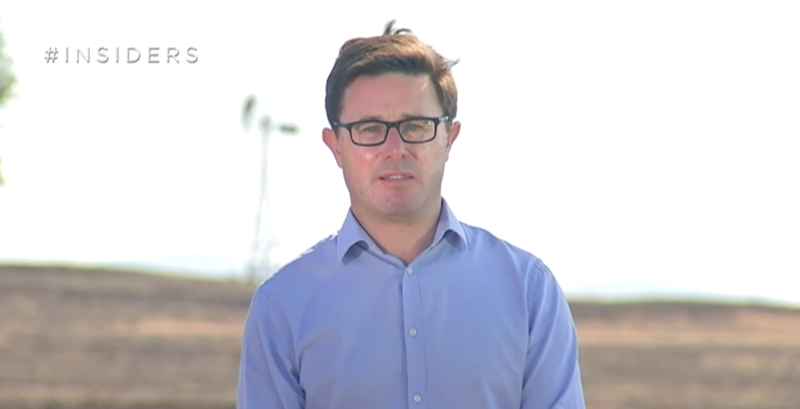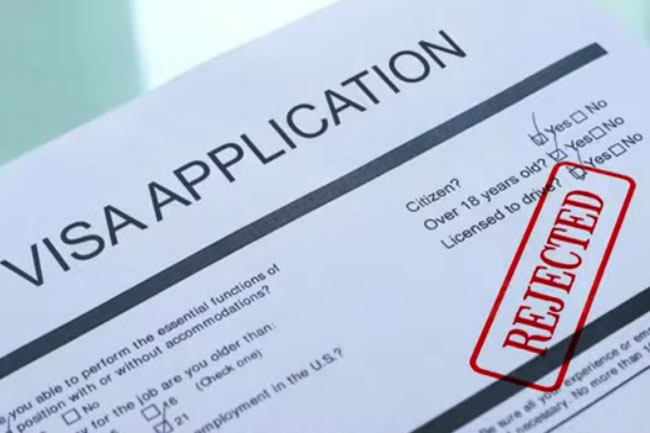Australia's Agriculture Visa policy is in disarray, writes Abul Rizvi.
AFTER COMMITTING to the first workers under the new Agriculture Visa arriving before Christmas 2021, Agriculture Minister David Littleproud has publicly expressed deep frustration with the slow progress of negotiations with ASEAN countries on the new visa as well as the suggestion from the Department of Foreign Affairs and Trade (DFAT) that the visa may be capped at just a 1,000 places.
Littleproud may not have noticed that in the 2021 Mid-Year Economic and Fiscal Outlook (MYEFO), the Government assumed very few people will have applied for an Agriculture Visa in 2021-22. Indeed, the number is so small that it did not even register as an actual figure.
It is abundantly clear DFAT has little interest in the Agriculture Visa, with negotiations proceeding painfully slowly. The risk this visa represents in terms of damaging relations with major nations such as Indonesia if, as is likely, their citizens are exploited and abused, is just too great.
DFAT would know that the embarrassment to Australia and the potential damage to the bilateral relationship would be enormous.
Indonesia, and all other ASEAN nations, will want strong assurances from DFAT that their citizens will be properly protected.
This is not, as Littleproud suggests, about unions in Australia misleading ASEAN nations. ASEAN nations are more than capable of doing their own research and will be well versed in the long history of migrant farmworker exploitation around the world and in Australia over at least the last decade – even if Littleproud and the farm lobby remain in denial on this fact.
Given the extensive exploitation of workers on the Pacific Island Labour Mobility (PALM) scheme, its appalling death rate and the high rate of workers absconding and/or applying for asylum, it would be hard for DFAT to provide any meaningful assurances beyond the usual platitudes.
ASEAN nations would be particularly displeased if their citizens apply for asylum in large numbers, as citizens of Malaysia and to a lesser degree Indonesia and Vietnam, have been doing for the past six or seven years. They would be even more displeased if these asylum seekers were granted protection.
Against this background, the slow progress of negotiations is entirely understandable.
The only policy offering DFAT could make in its negotiations is that Agriculture Visa workers, unlike PALM scheme workers, will be offered a pathway to permanent residence. However, it is highly questionable whether this would increase protections for Agriculture Visa workers.
It is far more likely to make those workers even more vulnerable to exploitation by labour-hire companies and employers who could threaten the workers if they complain about their treatment, or abscond as over 1,200 PALM scheme workers already have, their chances of securing permanent residence would be lost.
Given these risks, and the fact Agriculture Visa workers will have little English and few post-secondary qualifications, it is not surprising the Department of Home Affairs (DHA) has made no progress with the development of the permanent residence pathway ministers have promised, most likely without consulting DHA on the details.
The 1,000 place cap advice given by DFAT to the Senate earlier this month was later clarified to mean 1,000 places per agreement nation. Nevertheless, DFAT still contends that the PALM scheme will have primacy over the Agriculture Visa and the number of visas issued under the Agriculture Visa will be "significantly less than the PALM" scheme.
While DFAT may not like the Agriculture Visa, it has accepted policy responsibility for it as well as a large injection of resources to manage the visa. In 2021 MYEFO, DFAT received $61.8 million over four years and $16.8 million per annum ongoing to manage the Agriculture Visa.
For it to now limit the visa to only 1,000 places per agreement nation, with serious doubts about the number of nations who will join, it would appear DFAT has accepted a very large injection of resources it may not actually need – was that its strategy from the start?
Similarly, DHA has accepted $15 million over four years and $3.9 million per annum to do its part in running what may now be a very small Agriculture Visa.
For some unknown reason, the Treasury Department has been allocated $35 million over four years and $15 million per annum for its part in the visa (whatever that part is).
In addition, the Government has assumed it will receive $5 million in 2022-23 and $10 million per annum ongoing in application fee revenue for the Agriculture Visa. There are likely to be two parts to this revenue – a sponsorship fee of possibly $420 and a visa application fee of $315.
Assuming there are 1,000 new employer sponsorship applications each year, the Government would receive around $420,000 per annum in sponsorship fees. That would mean it has assumed it will receive over 14,000 Agriculture Visa applications in 2022-23 and over 28,000 visa applications in every year after that at $315 per application.
That assumption seems directly contrary to the DFAT statement that the PALM scheme will have primacy over the Agriculture Visa unless the Government is expecting a dramatic increase in the size of the PALM scheme.
Perhaps the Government could clarify things by publishing the actual underlying assumptions.
In addition to the above, the Government has also assumed it will receive $20 million in 2022-23; $50 million in 2023-24 and $55 million per annum after that in income tax and GST receipts from Agriculture Visa holders.
In other words, the Government expects to make a substantial fiscal profit from Agriculture Visa holders as they are not eligible for services such as Medicare (they are required to have private health insurance) or social security. Nor will many of them be going to school or TAFE or have access to social housing, child care and other services.
Thus we have the bizarre situation where the Government is expecting to make a handsome profit from the Agriculture Visa while DFAT and DHA are understandably reluctant to implement what is fundamentally poor policy.
This is what happens when policy is developed top-down, based on political deals.
Dr Abul Rizvi is an Independent Australia columnist and a former Deputy Secretary of the Department of Immigration. You can follow Abul on Twitter @RizviAbul.
Related Articles
- Morrison's Migration Act is cruel and callous
- Future of working holiday visa unclear
- Visa changes target low-skill employment with few worker protections
- Immigration reform must respect migrants' rights and drive economic growth
- Australia’s weak labour market causes NZ migration slump
 This work is licensed under a Creative Commons Attribution-NonCommercial-NoDerivs 3.0 Australia License
This work is licensed under a Creative Commons Attribution-NonCommercial-NoDerivs 3.0 Australia License
Support independent journalism Subscribe to IA.















